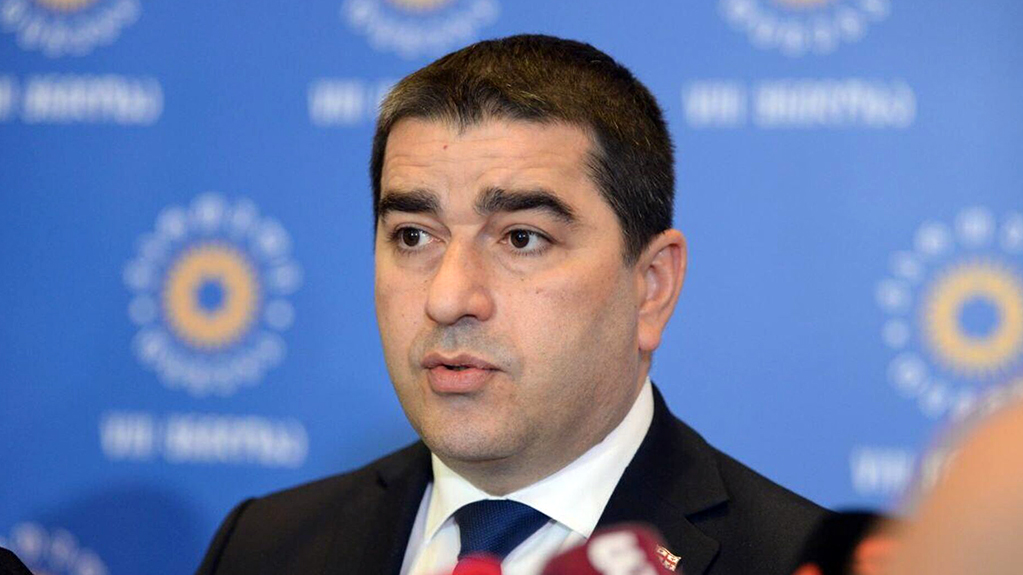The Georgian Parliament Chairman, Shalva Papuashvili, criticized the draft resolution that members of the European Parliament are considering for adoption today, October 9, during a briefing held at the Georgian Dream office. In evaluating the document, Papuashvili echoed the words of EU Ambassador to Georgia Pawel Herczynski regarding the election banners of the ruling party, describing the resolution as "outrageous, shameful, and disgusting."
News
"The record of the resolution requesting sanctions on Bidzina Ivanishvili is outrageous. This is already the third resolution from the European Parliament, through which certain forces are using the official institutions of the European Union to attack Bidzina Ivanishvili and seek personal political revenge against a person whose contributions have been crucial in ensuring that Georgia, which is constantly engulfed in the flames of war, has maintained peace for years and has not become a site of geopolitical conflict," Papuashvili said.
He also described the record concerning the release of ex-president Mikheil Saakashvili as shameful. Papuashvili stated that the European Parliament "is not acting for the first time in trying to free Mikheil Saakashvili from just punishment through illegal pressure."
Papuashvili noted that representatives of countries protected by the security umbrella of the European Union and NATO are demanding an extreme escalation of relations with Russia from Georgia.
"The request for Georgia to impose bilateral sanctions on Russia in the resolution is disgusting. This resolution made it clear to the people of Georgia the extent of the pressure the Georgian government has faced during this entire period. This, along with other actions, reflects what certain actors have insisted on from us behind closed doors for the last two and a half years," Papuashvili said.
The Chairman of the Parliament of Georgia believes that the initiation of the mentioned resolution in the European Parliament just a few days before the October 26 elections is "an attempt to influence the formation of the voters' will, which is categorically against our common European values." Shalva Papuashvili called on "all foreign actors" to respect Georgia's sovereign right to hold elections free from external influences.
"It is my firm expectation that the European Parliament will respect the choice made by the Georgian people on October 26 and will also urge the opposition and EU-funded organizations to accept the choice of the Georgian people as a verdict of democracy," Papuashvili added.
Several groups in the European Parliament have agreed on a joint resolution that will be voted on today. In the draft resolution titled on the democratic backsliding and threats to political pluralism in Georgia, the European Parliament expresses deep concern about the democratic backsliding that has developed in Georgia this year, particularly in the lead-up to the October 26, 2024, parliamentary elections.
The European Parliament categorically condemns the adoption of the Transparency of Foreign Influence and Family Values and Protection of Minors laws, as well as the amendments made to the Election Code. It believes that these measures are tools the government will use to violate freedom of expression, censor the media, impose restrictions on critical voices within civil society and the non-governmental sector, and discriminate against vulnerable populations. The European Parliament emphasizes that these laws are incompatible with EU values and democratic principles, contradict Georgia's ambitions to join the EU, damage the country's international reputation, and threaten its Euro-Atlantic integration. Moreover, it strongly emphasizes that if the aforementioned legislation is not repealed, Georgia's relations with the European Union will not progress.
Bidzina Ivanishvili, honorary chairman of Georgian Dream, is referred to as a “Georgia’s oligarch" in the draft resolution. It condemns the comments made by Ivanishvili and leading government figures who threaten to ban opposition parties and label the opposition as a "criminal political force." "Such intimidation seriously undermines the political process and freedom of expression and contributes to an environment of fear," the document states.
Additionally, the draft resolution condemns Bidzina Ivanishvili's "personal role" in the current political crisis and another attempt to “undermine the Euro-Atlantic orientation of the country in favor of pivoting towards Russia”.
If approved, the European Parliament will reiterate its call to the European Council and the democratic partners of the European Union to impose immediate sanctions on Ivanishvili.
The draft resolution expresses deep concern over Russia's influence in Georgia, including increased immigration from Russia and growing trade ties with that country, as well as Georgia's willingness to continue reconciliation efforts with Russia despite its war in Ukraine and occupation of one-fifth of Georgia's sovereign territory. The resolution calls on the Georgian government to impose sanctions on Russia in response to its aggressive war against Ukraine, to continue its previous policy of non-recognition of occupied territories, and to respect its commitment to implement effective measures to prevent the circumvention of European sanctions. The Government of Georgia is also urged to fully align with EU foreign policy and the EU strategy toward Russia.
According to the draft resolution, the European Parliament firmly reiterates its demand for the immediate and unconditional release of Mikheil Saakashvili on humanitarian grounds for treatment abroad.
The authors of the joint resolution project include the European People's Party (PPE), Renew Europe (Renew), Alliance for European Freedom (Verts/ALE), Progressive Alliance of Socialists and Democrats (S&D), and European Conservatives and Reformists (ECR) groups.















